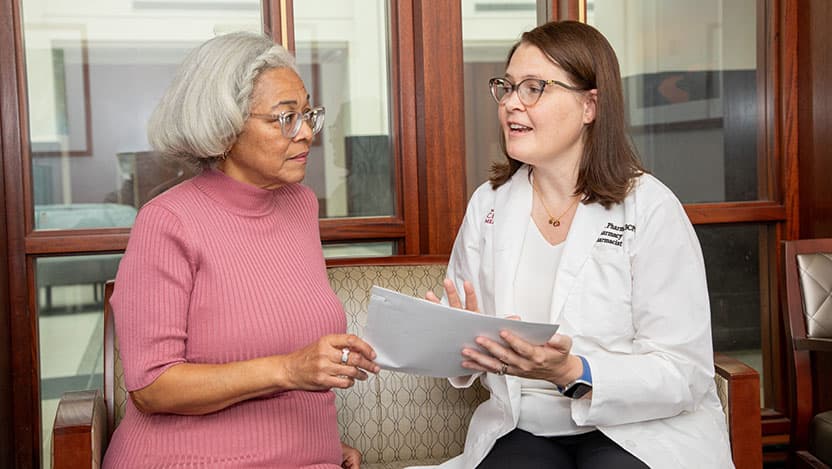Pre- & Post-Transplant Care

Making Your Transplant Process as Easy as Possible
When you come to the University of Chicago Medicine, you can be confident that you will receive the highest level of care. Our experienced team of specialty physicians, nurses and other health care professionals is dedicated to your well-being.
Our mission is to provide superior health care in a compassionate manner, ever mindful of each patients' dignity and individuality. We encourage you to discuss your schedule with your caregivers and to ask questions about your treatment plan. Your team will keep you up to date on scheduled tests, procedures, medications and other aspects of your care.
What to Expect Before Your Transplant
Patients in need of transplantation come to us in a variety of ways. Your first visit with us may be with a transplant coordinator, in a transplant education session or an appointment with one of our medical physicians who specializes in transplant. No matter which of our transplant team members you see first, your transplant evaluation will include a few key steps:
- A pre-transplant coordinator will help set up all of your tests and meetings. How quickly the evaluation is completed depends on your availability as well as your medical condition. You may need to take some time off work to complete the tests, but we will try to make appointments as convenient as possible.
- A review of your insurance coverage will be done to calculate what out-of-pocket expenses you may have for a transplant and for the medications you will need to take after the transplant.
- In preparation for finding a donor for your transplant, your blood will be tested for blood type, genetic markers and antibodies. The testing you have as part of your transplant evaluation will depend on your medical history.
After you have completed the evaluation testing and appointments, your case is reviewed by our team of specialty physicians to determine the best course of treatment.
- Kidney transplant evaluation locations
- Liver transplant evaluation locations
- Lung transplant evaluation locations
What to Expect After Your Transplant
In most cases, you should be able to resume your daily activities — such as driving, household chores, work, school and some sport activities — in three to six months after the procedure.
You will receive advice about your recovery period, including wound care and/or line care, showering, driving, physical activity and what to expect when you are able to return to you usual routine.
We will advise you about diet, medication, emotional issues and the important task of preventing infections, as well as what happens if your body rejects the organ or transplanted cells.
Your team will be available for post-operative clinic visits, checkups and advice on a variety of life issues. After your transplant, you will have frequent appointments with the transplant team to make sure you are recovering well. These visits will be less frequent over time. We are available 24 hours a day, seven days a week to answer questions and help you enjoy this new phase of your life.
Transplant Support Team
Besides the doctors, University of Chicago Medicine offers transplant patients a team of support staff. Here's a rundown of each member of the support team.
The problem solver who directs issues to the appropriate team member. Provides emotional support and helps the patient navigate the health care system and pay for needed post-surgery services.
A nurse or nurse practitioner who educates patients about their upcoming evaluation and potential surgery. Monitors their pre-surgery tests, lab work, appointments and instructions.
A nurse practitioner who stays connected to patients for life, or until they move out of the area and to another hospital. Adjusts medication as needed, sees patients in clinic, monitors labs and tests, schedules appointments and orders or interprets diagnostic tests. Prepares patients for post-hospital life. Works with insurance companies to get tests approved and handles disability paperwork.
Deals with insurance approval for evaluation and potential transplant surgery.
Designs a customized dietary regimen to help prevent nutrition-related illnesses or problems.
Manages and dispenses medications. Watches for dangerous medication interactions, and adjusts medications based on test results. Works to keep patients’ drug costs low by finding medicines covered by insurance or helping patients enroll in special prescription programs.
Help When Traveling from Outside the Chicago Area for Medical Care
For Logan Andrews and his family, traveling from North Carolina to Chicago for Logan's heart and liver transplant care required special assistance beyond medical expertise. The family turned to the Destination UChicago Medicine team to help scheduling appointments, arranging travel and finding accommodations.
